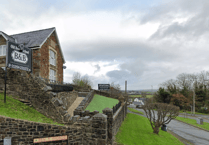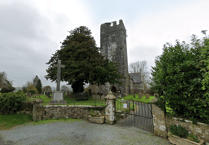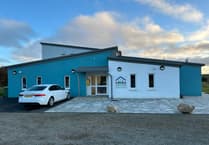The UK Climate Projections 2018 indicated that weather conducive to wildfire ignition will increase and the wildfire season will extend, says the Mid & West Wales Fire and Rescue Service.
With the potential of warmer and wetter winters increasing the fuel load and with longer and drier summers increasing the risk of fire. It has also been suggested that summers could become more hazardous than spring for wildfire by the end of the century.
The service is always looking ahead and planning for the longer term. Climate change models are being considered so that they can determine community and environmental impact, ensuring that they have the right resources in place at the right time, whilst maintaining firefighter safety when attending wildfire incidents.
The Mid & West Wales Fire and Rescue Service is also involved in working with land managers such as graziers, farmers, foresters and local National Parks to look at managing vegetation and making arrangements to prevent the spread and severity of wildfires. This is arranged and carried out with a collaborative approach in order to improve biodiversity, maintain safety, and help the countryside flourish for future generations to come.
In terms of wildfires, there has been a gradual reduction year on year with fluctuations dependent on weather and external factors such as changes in grazing levels etc. Wildfires are assessed by the Officer-in-charge when attending incidents to ascertain the most likely cause – this is generally due to anti-social behaviour or uncontrolled burning (whether intentional or accidental). One thing that is certain is that the vast majority of these fires are caused by people in one way or another.
The service believes that ignitions due to natural factors such as lightning strikes are few and far between. This means that Mid and West Wales Fire and Rescue Service maintain a commitment to engage with all communities to highlight the impact of wildfires, whether it be through schools and youth services or via agricultural communities and organisations where working together is prioritised.
Richie Vaughan-Williams, Arson Reduction Manager said:
“Collaborative and Partnership working is proving to be very effective, and we are seeing some positive outcomes and a significant reduction in larger fires across Wales this year. However, wildfires are still high on the agenda as should climate predictions come to fruition we will change our approach to tackling wildfires as they may pose a different risk – we have already started planning for this in preparation”
For more information on how you can keep your community safe, reduce the risk of wildfires or accidental fires, visit https://www.mawwfire.gov.uk/eng/newsroom/current-campaigns-and-consultations/dawnsglaw





Comments
This article has no comments yet. Be the first to leave a comment.